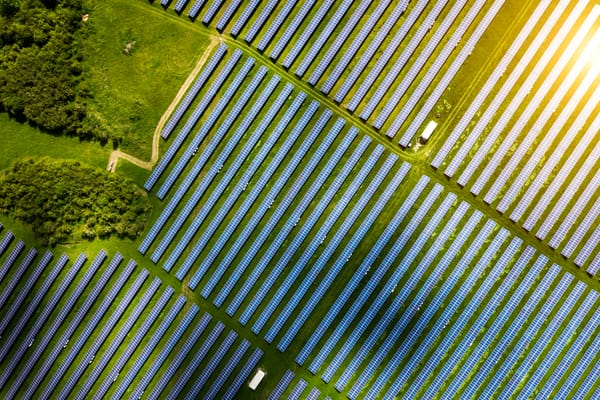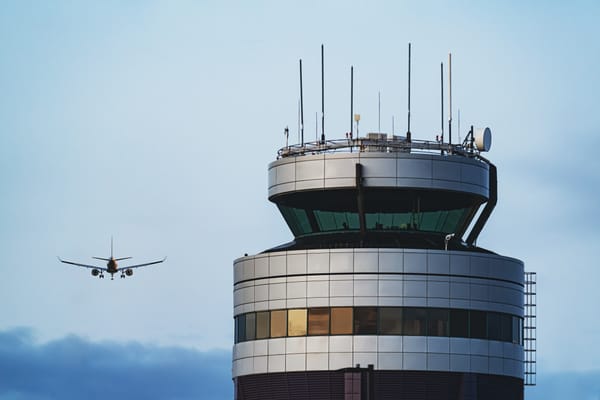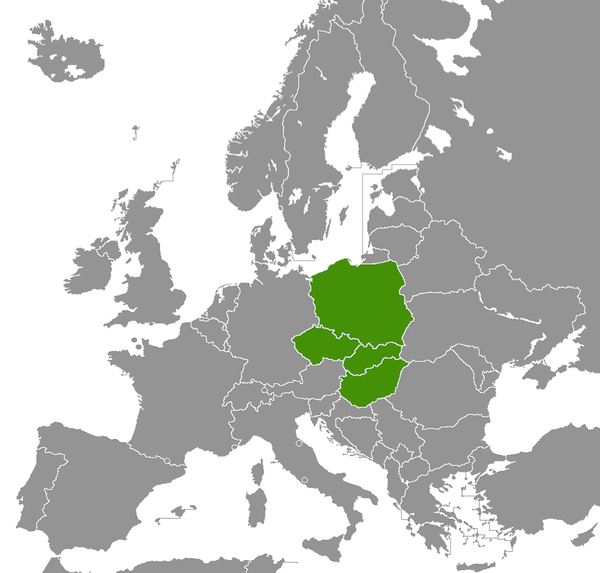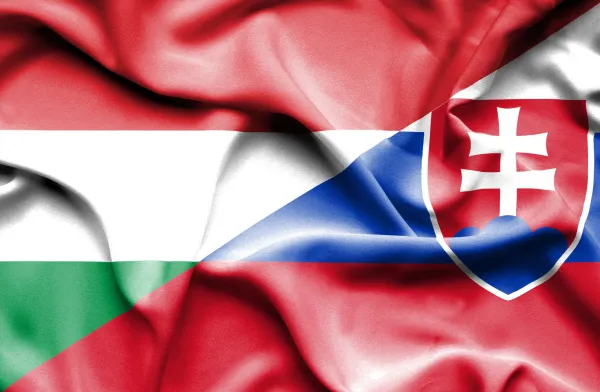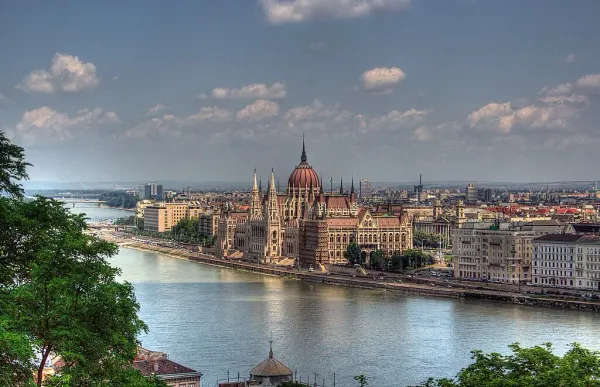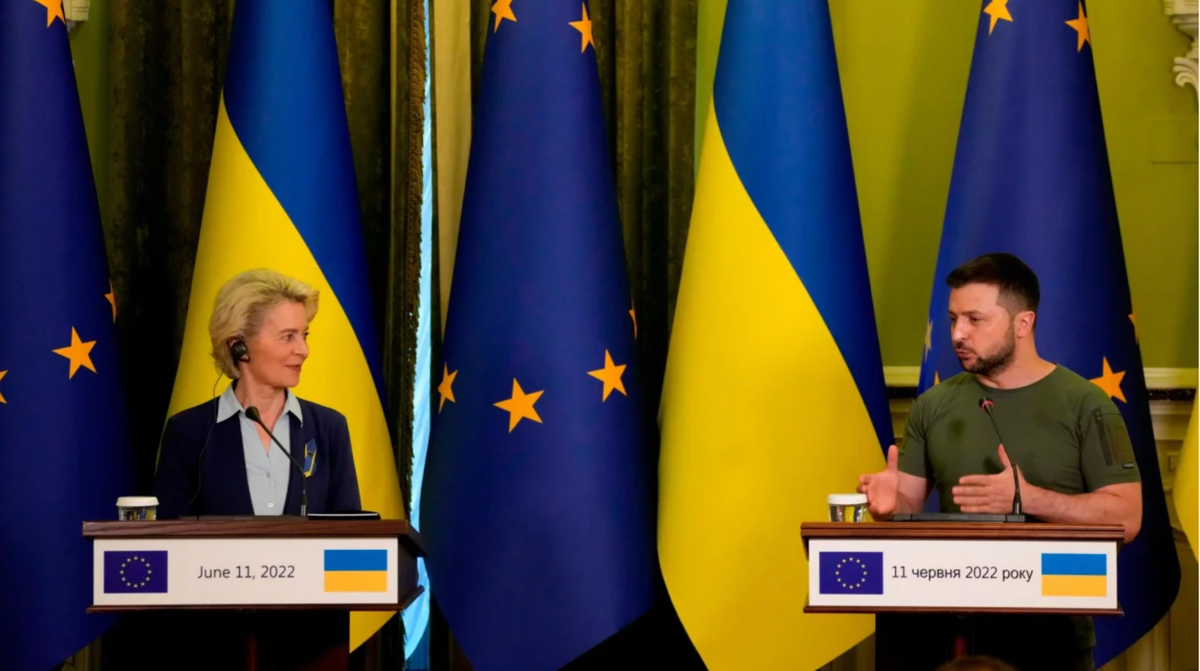
Ukraine, Moldova open EU accession talks
The EU formally opened accession negotiations with Moldova and Ukraine on 25 June. The agreement of the EU’s 27 members was secured the previous week, despite efforts from Hungary to block the move.
“These are truly historic moments. Ukraine is and will always be part of a united Europe,” Ukrainian President Volodymyr Zelenskyy said. European Commission President Ursula von der Leyen called the development “the threshold of a significant and transformative moment for these two countries and for our Union.”
Ukraine lodged its bid to join the EU immediately after Russia launched its full-scale land invasion of Ukraine in February 2022, with Moldova closely behind. The EU will now begin to set out conditions for talks on 35 subjects, from justice and the economy to human rights and taxation. Given Hungary’s recent commencement of its six-month tenure as the EU’s rotating presidency, little progress is expected until next year.
YES celebrates landmark, two decades after foundation
The Yalta European Strategy (YES) noted that it had held its first meeting in Livadia Palace in Yalta in Ukrainian Crimea in 2004, and the opening of EU accession talks represents the “culmination of the YES initiative’s long-standing efforts to support Ukraine’s accession to the EU”. In 2013, Russia’s annexation of Crimea forced the YES Annual Meeting to relocate to Kyiv.
The YES board added that opening accession talks “took the Russian invasion, it took the toll of Ukrainian lives lost at the forefront of dreadful battles, it took the suffering of the wounded, it took the destructions of homes and the displacement of families.
The statement continued that “the prospect of a European Ukraine does not mean that our organization has fulfilled its mission. Alongside European integration, YES remains committed to supporting Kyiv with military strategy, international support, and plans for ending hostilities and reconstructing Ukraine. Every year since 2014, conference participants have demonstrated their support with the hopeful slogan, ‘Next year in Yalta!’ Let’s hope they will soon add, ‘…and also in Brussels.’
“There is now a consensus that Ukraine needs further security guarantees. Its leaders and people are considering NATO membership. At YES, we believe the EU has a strong card to play, as our treaty already offers these security guarantees. Ukraine’s future as an EU member depends on its efforts and the support of its Western allies,” the YES board members added.
Von der Leyen: hard road to EU ahead
Ukrainian businessman and philanthropist Victor Pinchuk founded the YES as a private initiative on July 1, 2004, when he invited some 30 European leaders to discuss the future of Ukraine and the EU. The YES is now overseen by Aleksander Kwasniewski, who was president of Poland from 1995–2005.
Other YES board members include Kersti Kaljulaid (president of Estonia 2016-21), Carl Bildt (Swedish foreign minister 2006-14), Sanna Marin (Finnish prime minister 2019–23), and Anders Fogh Rasmussen (NATO secretary general 2009-14, Danish prime minister 2001-09). The board members said in a joint statement that “the accession talks came after 20 years of work to make public opinions and European leaders aware of the urgent need for Ukraine to join the EU in the face of potential threats from its Russian neighbour”.
Von der Leyen said “the people of Ukraine and Moldova have demonstrated their unwavering commitment and determination to be a part of this project. Even in a time of war and turmoil they have started extensive reforms.
“They know that their journey will be rigorous and demanding. The accession negotiations are designed to prepare the candidates for the responsibilities of membership. This is why there are no shortcuts. We embark on these negotiations in a strong spirit of openness, engagement, and commitment,” von der Leyen underlined.

